Over 30,000 Flights Canceled Ahead of “Record-Breaking” Travel Weekend
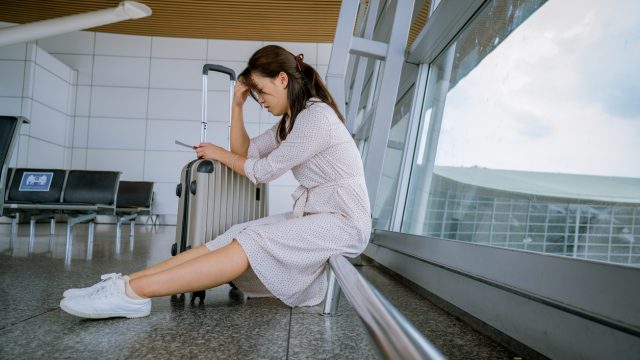
It’s always nice to get away, but something about summer vacations makes the season feel particularly special. And while it might not be as family-focused as Thanksgiving or the end-of-year holidays, the Fourth of July provides the perfect excuse to fly out of town for some relaxation. Unfortunately, this rush on airports can make any cancelations, delays, or scheduling problems an even bigger headache than usual. And now, over 30,000 flights have been canceled ahead of what officials are already calling a “record-breaking” travel weekend. Read on to see how bad the situation is—and if your plans could be affected.
READ THIS NEXT: Delta Is Cutting Flights to 16 Major Cities, Starting in August.
A “record-breaking” number of travelers is expected to take to the skies and hit the road this weekend.
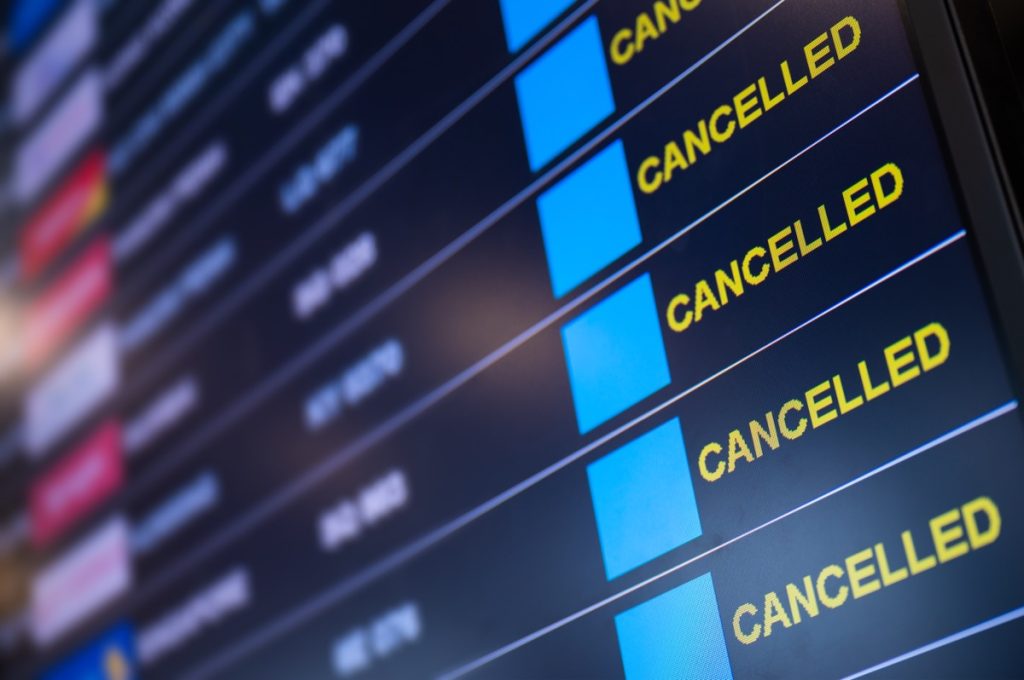
Airlines appear to be faced with a looming surge of passengers that will take to the skies this holiday weekend in a wave unlike any seen since before the COVID-19 pandemic.
According to data from the American Automobile Association (AAA), about 50.7 million people are expected to travel at least 50 miles from home ahead of the Fourth of July, marking a 2.4 percent increase from last year and a 4 percent increase from the last pre-pandemic holiday in 2019. This includes 4.17 million people traveling by air this year.
The Transporation Security Administration (TSA) also projected a large turnout at airports ahead of the busy travel weekend. In a statement released June 27, the agency said it expects to process 2.82 million air passengers at the peak of the holiday surge on Friday, June 30 alone, and a total of 17.7 million travelers over the course of the week from June 29 through July 5.
Despite the historic rush, the agency assured it was prepared to handle the crowds. “TSA is staffed and ready for the increasing travel volumes during this holiday travel period with the technologies and resources for improved security effectiveness, efficiency, and passenger experience at security checkpoints,” TSA Administrator David Pekoske said in the statement.
Over 30,000 flights have been canceled this week, creating chaos during a busy travel week.
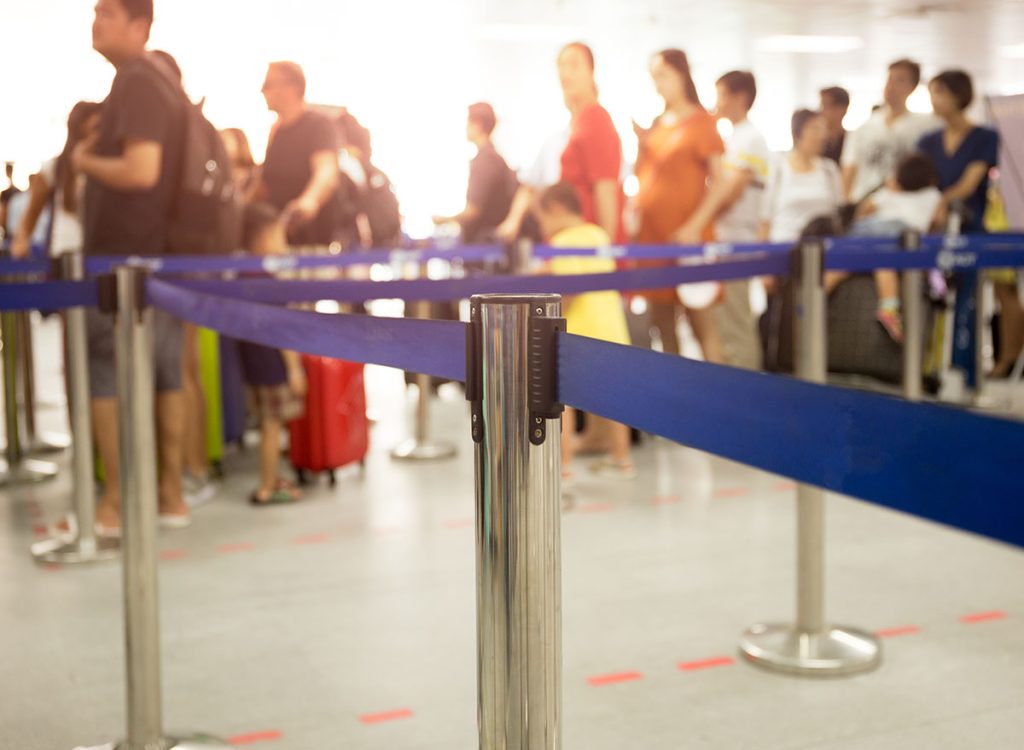
Unfortunately for the airlines and the passengers who are flying them, things are off to a bit of a rocky start. The past few days have seen carriers struggle to stick to their schedules as storms and logistical issues have led to the cancellation of more than 30,000 flights this week so far, The Points Guy reports.
The trouble began over the weekend when thunderstorms grounded planes and delayed takeoffs at airports along the East Coast. But even after a slight improvement on Monday, weather issues once again took their toll, with roughly 7,200 flight delays and 1,200 cancelations in the U.S. on Wednesday alone, according to the flight data website FlightAware.
Major hubs like New York’s John F. Kennedy and LaGuardia Airports, New Jersey’s Newark Liberty Airport, and Chicago’s O’Hare International Airport have seen the most issues since the trouble began, according to The Points Guy. United Airlines was particularly affected as its Newark hub was brought to a near standstill, canceling more flights than any other carrier for five straight days, per AP.
RELATED: For more up-to-date information, sign up for our daily newsletter.
United’s CEO called out officials for making the issues worse than they had to be.
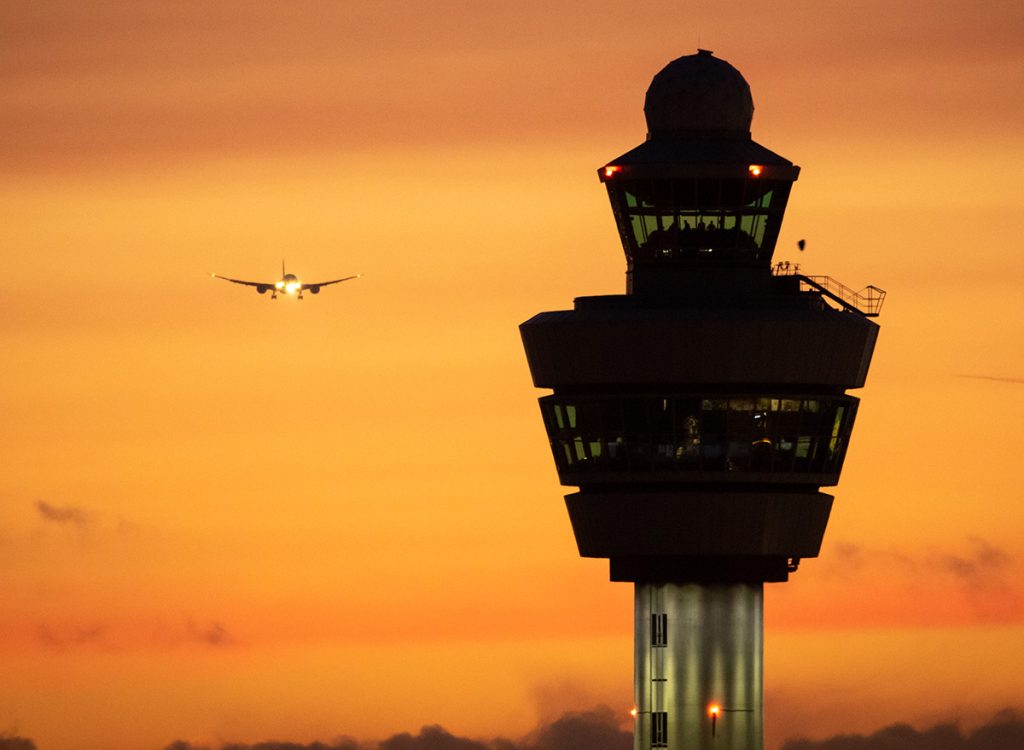
But some of the airline industry’s top brass is also laying some blame on officials for the ongoing mess. In an email sent to employees on June 26, United Airlines CEO Scott Kirby said the Federal Aviation Administration (FAA) had failed his company with its cancelations at Newark Airport, CBS News reports.
“I’m… frustrated that the FAA frankly failed us this weekend,” Kirby wrote to employees. “As you know, the weather we saw in [Newark] is something that the FAA has historically been able to manage without a severe impact on our operation and customers.”
Kirby’s frustration comes just months after the FAA issued a warning notice in March that summer travel could be disrupted due to a serious air traffic controller shortage in New York. At the time, the agency said it only had hit 54 percent of its staffing goal for the busy air travel hub. The announcement led major airlines, including Delta, United, American, and JetBlue, to reduce their flight schedules from New York-area airports for the summer in anticipation of scheduling issues.
“It’s not the fault of the current FAA leadership that they are in this seriously understaffed position—it’s been building up for a long time before they were in charge,” Kirby wrote in the June 26 email, per CBS News. “But, it is incumbent on them now to lead and take action to minimize the impact.”
Passengers are still struggling to reach their destinations ahead of more forecasted storms.
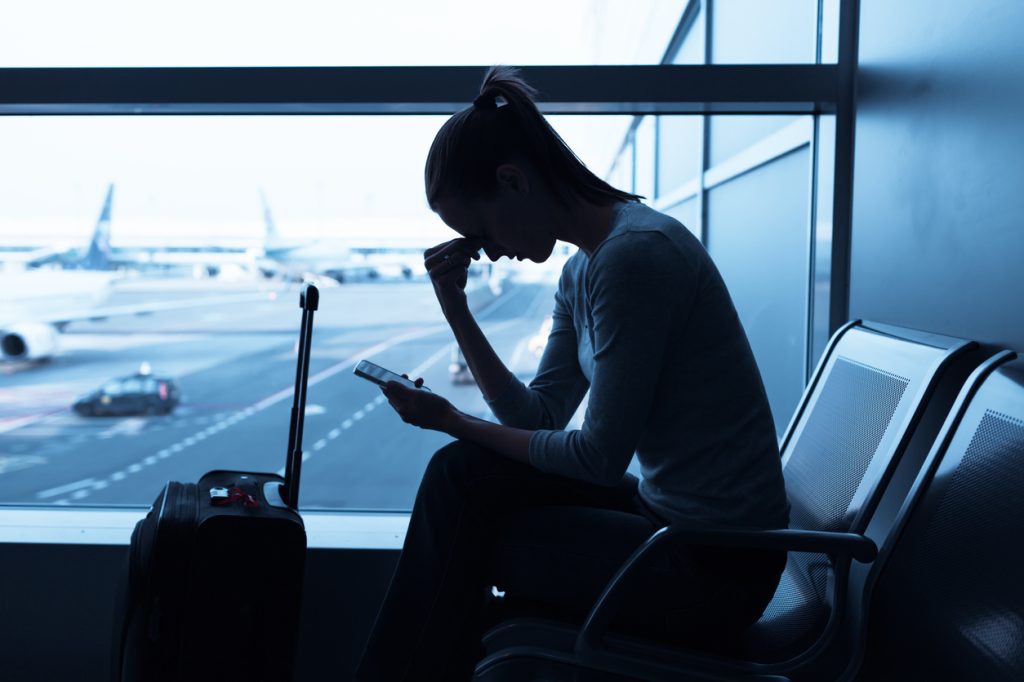
In a statement released on June 28, United said it was “beginning to see improvement” with its current situation, adding that “as our operation improves in the days ahead, we will be on track to restore our operation for the holiday weekend.” But many passengers were already frustrated with the experience.
“My flight has been canceled like five times now,” Tia Hudson, a United Airlines passenger who had been stuck at Newark Airport for four straight days, told AP on June 27. “I slept at the airport two nights, I booked two hotels, I spent over $700 since I’ve been here, and they said they’re not going to reimburse me because it’s weather-related,” she said. “It’s not weather-related. It’s a shortage of pilots and attendants.”
Hudson added that the snafu had made her miss her mother’s wedding in Dallas—and that the airline had also lost her bags. “I just want to get away from this airport, but they say nobody is leaving until Saturday,” she told AP.
Unfortunately, experts caution that the upcoming holiday might not bring any relief to the situation. Stormy weather remains in the forecast for parts of the East Coast, while Canadian wildfire smoke and intense heat in the southern states could also play a factor, according to Mike Arnot, a spokesman for the aviation analytics firm Cirium.
“It’s going to be a very hectic weekend and one with potential for disruption,” he told The New York Times.